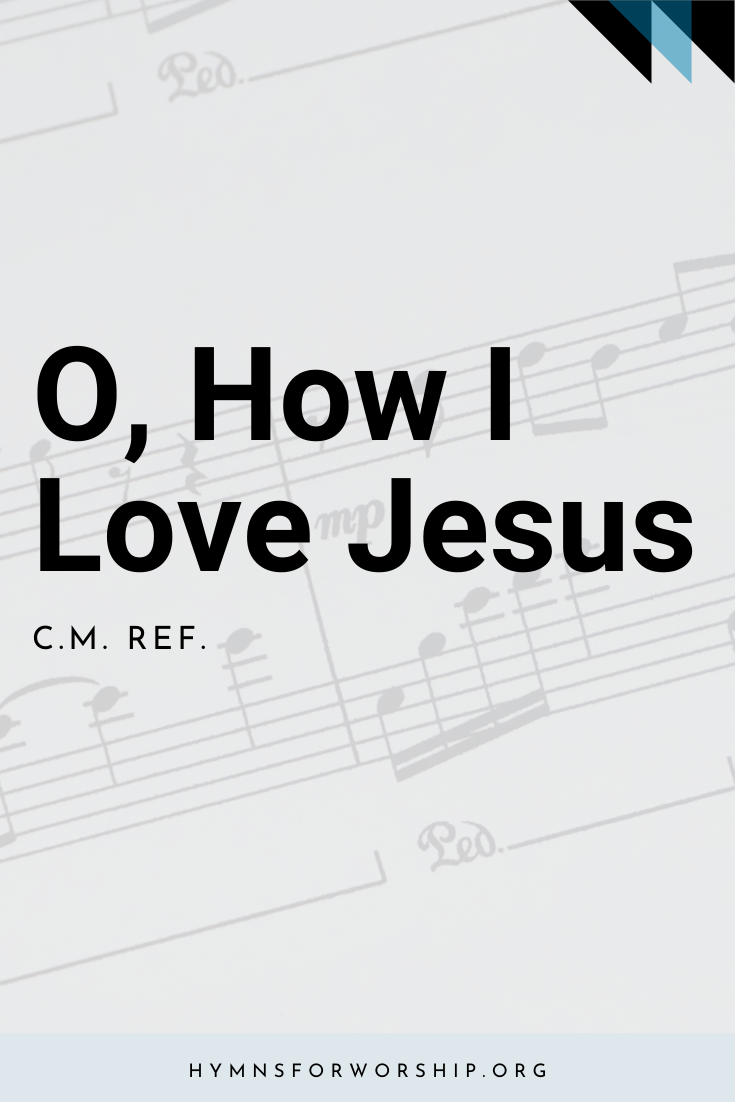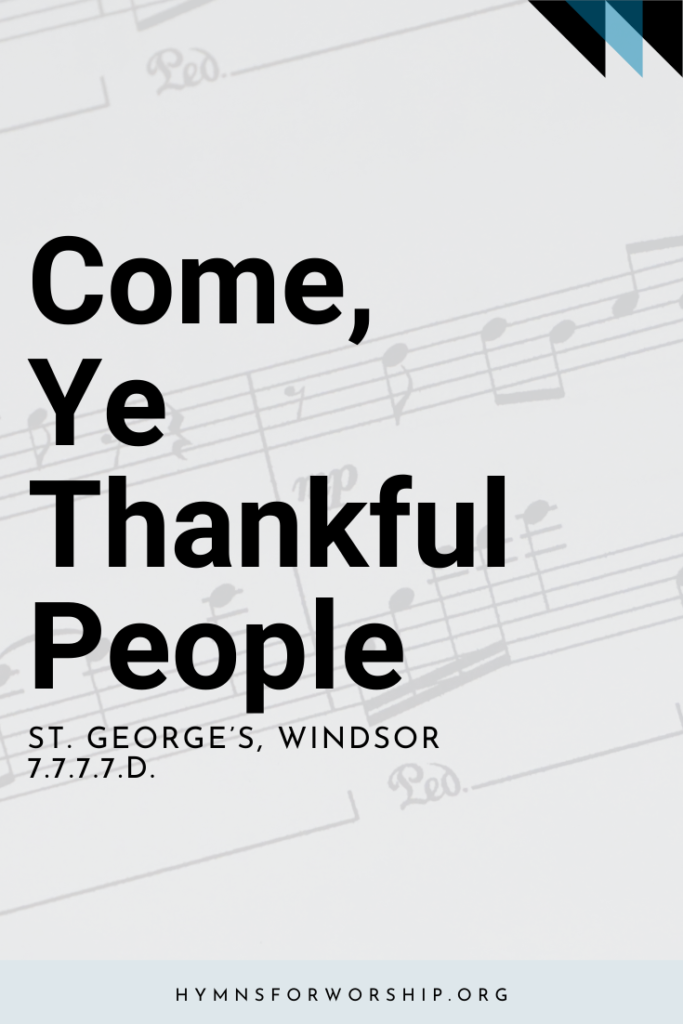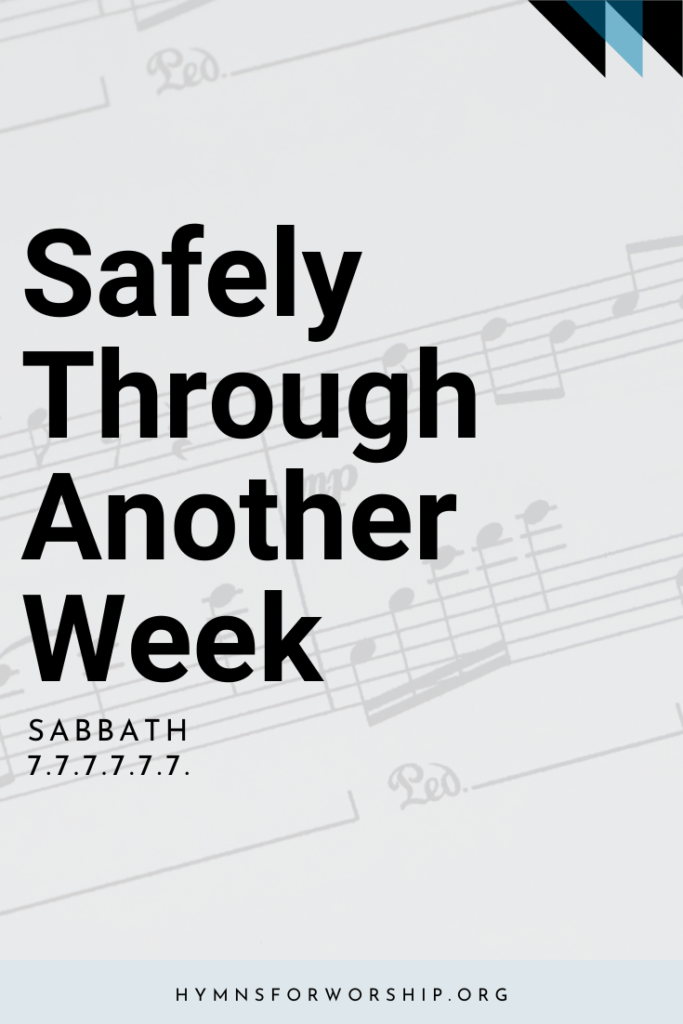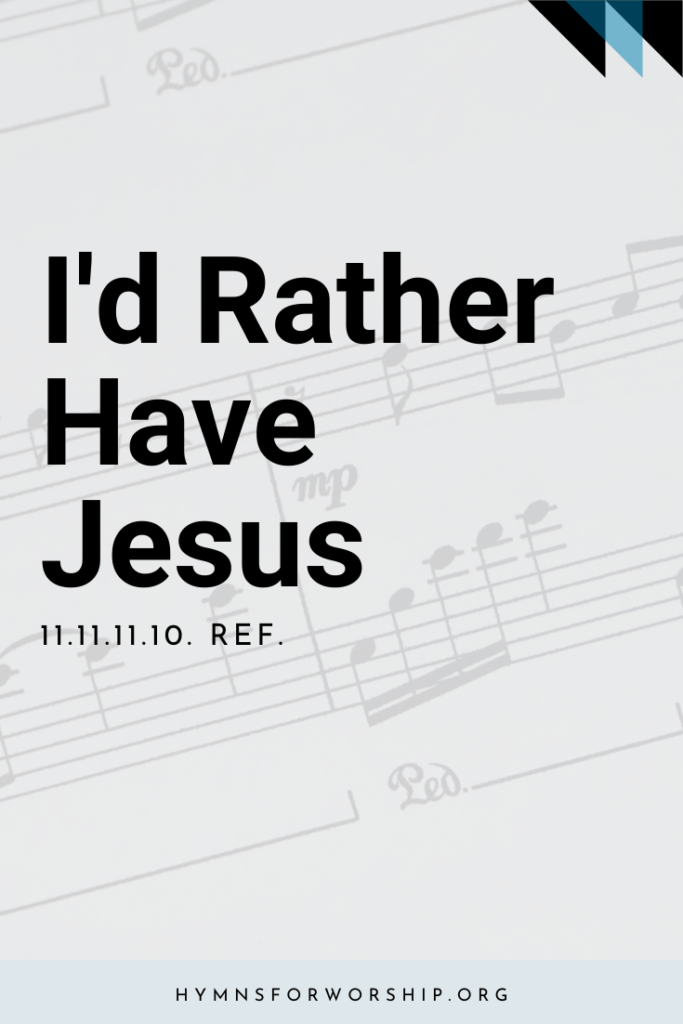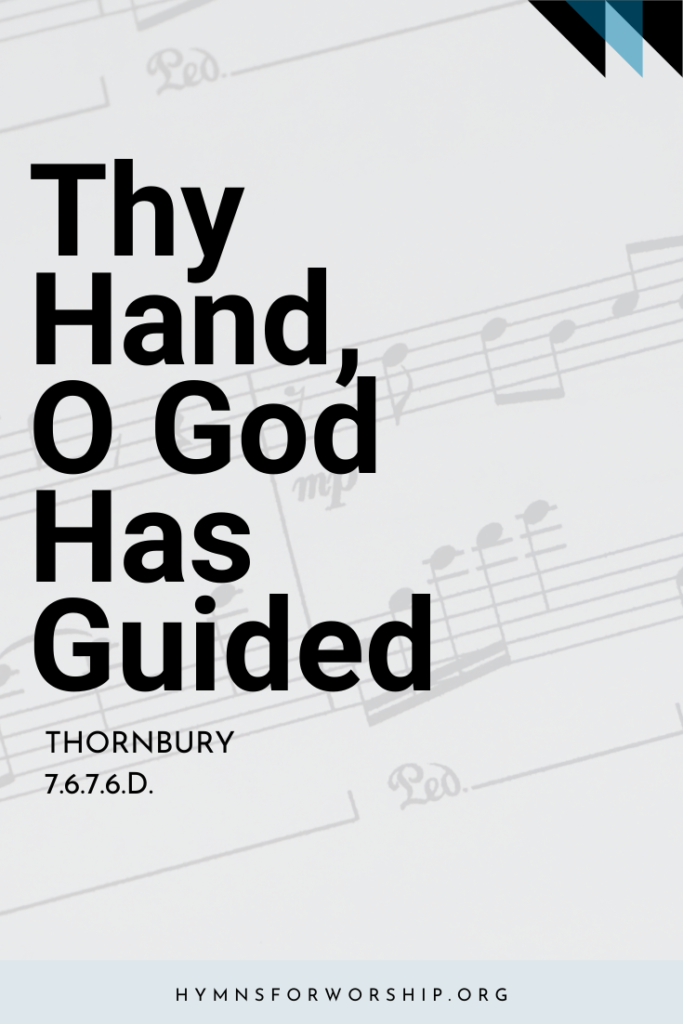JESUS CHRIST >> GLORY & PRAISE
SDAH 248
There is a Name I love to hear,
I love to sing its worth;
It sounds like music in my ears,
The sweetest Name on earth.
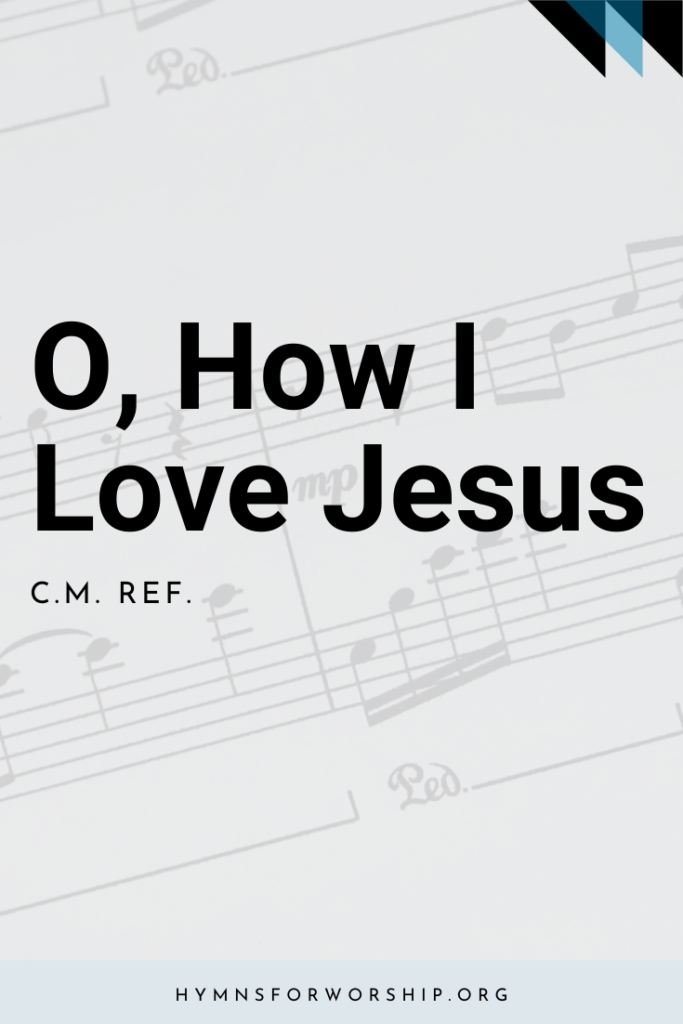

Text
1
There is a Name I love to hear,
I love to sing its worth;
It sounds like music in my ears,
The sweetest Name on earth.
Refrain
O how I love Jesus,
O how I love Jesus,
O how I love Jesus,
Because He first loved me.
2
It tells me of a Savior’s love,
Who died to set me free;
It tells me of a Savior’s blood,
The sinners’ perfect plea.
3
It tells of one whose loving heart
Can feel my deepest woe;
Who in each sorrow bears
A part that none can bear below.

Hymn Info
Biblical Reference
(r) 1 John 4:1
Author
Frederick Whitfield (1829-1904)
Year Published
1855
Metrical Number
C.M.Ref.
Tune Source
19th Century American Melody
Hymn Score
[tnc-pdf-viewer-iframe file=”https://hymnsforworship.org/wp-content/uploads/2017/01/SDAH248.pdf” width=”900″ height=”850″ download=”true” print=”true” fullscreen=”false” share=”true” zoom=”true” open=”true” pagenav=”true” logo=”true” find=”true” language=”en-US” page=”” default_zoom=”auto” pagemode=””]
Piano Accompaniment
[wonderplugin_audio id=”248″]
Notes
Get to know the hymns a little deeper with the SDA Hymnal Companion. Use our song leader’s notes to engage your congregation in singing with understanding. Even better, involve kids in learning this hymn with our homeschooling materials.
Frederick Whitefield wrote the words of these stanzas in 1855 under the title “. The Name Of Jesus.” It appeared with 25 more of his original hymns in Sacred Poems and Prose, 1861. There were nine stanzas. As a hymn text it was published twice in 1864, in Goodman’s Village Hymn Book, Taunton, Massachusetts, and Bradbury’s Devotional Hymn and Tune Book, Philadelphia.
Frederick Whitfield was born January 7 1829, at Threapwood, a village in Shropshire, He trained at Trinity College, Dublin, Ireland, graduating with a B.A. in 1859, and was ordained in the Anglican Church. He was appointed curate to Otley, Yorkshire; then to Kirkby-Ravensworth, a village in north Yorkshire; then to Greenwich, on the south bank of the Thames River in east London. He was appointed vicar at Bexley in Kent, east of Greenwich; then to Hastings, Sussex. He wrote more than 30 books of prose and verse. Death came September 13, 1904, at Lower Norwood, Croydon, London. Whitfield also wrote SDAH 484, “I Need Thee, Precious Jesus.”
The refrain was not a part of the original hymn, but added to several “mother” hymns, including Newton’s “Amazing Grace,” Watts’s “Alas, and Did My Savior Bleed,” and other common meter hymns. Ellen Jane Lorenz, in her Glory, Hallelujah! The Story of the Campmeeting Spiritual, says that she found this favorite refrain attached to various mother-hymns 42 times, the earliest being dated 1868. The example she gives from The Revivalist, 1872, has a simpler final phrase, without the slur on the word because. The whole world tune is typical of the folklike camp meetings song in the nineteenth-century America that were in 6/8 time, had a natural easy movement, were a joy to sing and instantly memorable.

